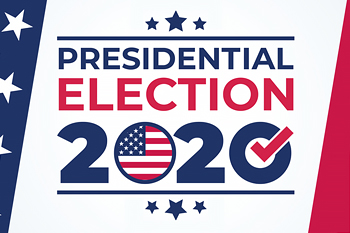HR specialist discusses how voters could alter minimum wage for millions of Americans
 Earlier this week, presidential candidate Joe Biden took to Twitter to share his proposed changes to minimum wage if he is elected, including ending tipped minimum wage and raising the minimum wage to $15/hr.
Earlier this week, presidential candidate Joe Biden took to Twitter to share his proposed changes to minimum wage if he is elected, including ending tipped minimum wage and raising the minimum wage to $15/hr.
In addition to these national campaign promises, Floridians will have a proposed minimum wage amendment on their ballots come November, potentially raising their minimum wage to $10/hr on September 20, 2021.
“If voters pass the amendment, the plan would be to raise the minimum wage to $10 next year, and then gradually continue to increase the wage until it hits $15/hr by 2026. This would double the current minimum wage in Florida, and mirror similar amendments which have already been put into practice in states like Illinois,” says employment expert Rob Wilson, President of Employco USA, a national employment solutions firm with locations across the country.
As for Biden’s promise to end tipped minimum wage, Wilson says the goal would be not to get rid of tips, but to ensure that restaurant workers and other tipped workers wouldn’t need to rely on tips in order to meet minimum wage. However, detractors say that this will actually lead to less tips and a decrease in servers’ salaries, along with having a harsh impact on restaurants’ bottom line.
“Rising labor costs have been attributed to the closing of many restaurants in several states which have increased their minimum wage,” says Wilson. “In order to meet these rising costs, restaurants are forced to markup their menus, putting pressure on customers to pay more for their burgers and salads in order to beef up employee’s hourly wage. It becomes an untenable situation that leads to people just deciding to eat at home rather than pay an increased cost for the same food.”
Wilson says that research has illustrated that raising the minimum wage can have the opposite intended impact on workers, actually leading to the loss of jobs.
“Past numbers show that increasing the minimum wage has a direct and negative impact not only on businesses but on workers themselves. Research by economists Jeffrey Clemens and Michael Wither of the University of California-San Diego showed that minimum wage increases were responsible for 14 percent of the job losses suffered between 2006 and 2012.”
Furthermore, Wilson says, only 1.8 percent of Americans earn minimum wage.
Wilson explains, “The reality is that most companies endeavor to pay a competitive wage to lure talent and ensure employee loyalty. However, certain positions (such as retail and hospitality) have a very thin margin of profit. These employers can only afford to pay workers minimum wage if they want to stay profitable and remain in businesses. An increase hits their businesses hard, which is why so many people have actually lost their jobs due to the minimum wage increases across the country.”
For more on this topic, please contact Rob Wilson at rwilson@thewilsoncompanies.com.